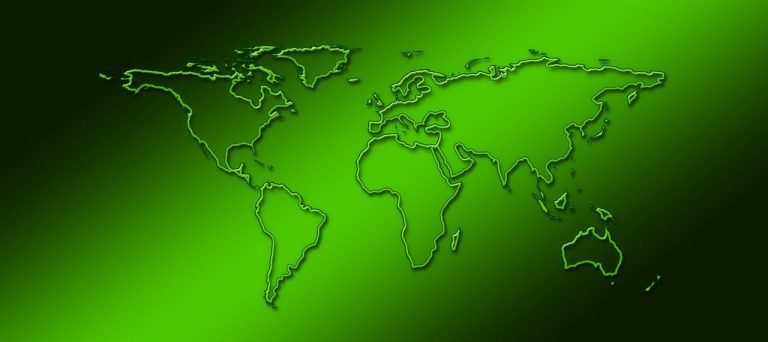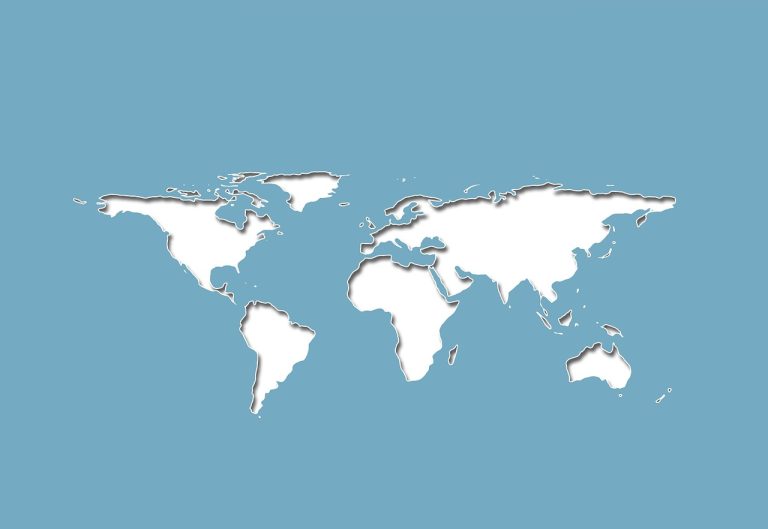
The Intricate Dance of Philippine Politics: An Analysis of Recent Political Alliances
The political landscape of the Philippines has always been characterized by its dynamic and often unpredictable nature. In recent years, the formation of political alliances has become a crucial aspect of this ever-evolving arena. These alliances shape the governance of the nation, influence policy-making, and affect the socio-economic development of the country. This article delves into the complexities of political alliances in the Philippines, examining their implications, historical context, and the future they may herald for the nation.
Understanding Political Alliances in the Philippine Context
Political alliances in the Philippines are not new phenomena. The country’s history is replete with examples of strategic partnerships formed to consolidate power and achieve common goals. The formation of alliances often involves a complex interplay of interests, ideologies, and objectives. Unlike in some Western democracies where political parties have rigid ideologies, Philippine political parties tend to be more pragmatic, often prioritizing political expediency over ideological purity.
This pragmatism is largely due to the multi-party system in the country, where no single party often gains a clear majority. Consequently, coalition-building becomes essential for governance. As a result, political alliances are frequently formed, dissolved, and reformed, reflecting the shifting sands of political power and influence.
Historical Context of Political Alliances
The history of political alliances in the Philippines can be traced back to the American colonial period when political parties began to emerge. The Nacionalista and Liberal parties dominated the political scene for much of the 20th century, often forming alliances to outmaneuver each other. These alliances were frequently influenced by external factors such as economic interests, regional loyalties, and even international pressures.

In more recent history, the People Power Revolution of 1986 marked a significant turning point. The ousting of Ferdinand Marcos and the subsequent restoration of democracy led to a proliferation of new political parties and alliances. This era saw the rise of coalition politics, where alliances were often formed to support presidential candidates or to secure a majority in the legislature.
Recent Developments in Political Alliances
In the past decade, several notable political alliances have shaped the Philippine political landscape. The election of Rodrigo Duterte in 2016, for instance, was heavily influenced by his coalition-building efforts. Duterte’s alliance with several influential political figures and parties, such as the Nacionalista Party and the Nationalist People’s Coalition, played a pivotal role in his electoral victory. His administration’s policies, particularly on issues such as the war on drugs and foreign relations, were supported by these alliances.
Another significant development has been the rise of regional parties and their increasing influence in national politics. The establishment of the Bangsamoro Autonomous Region in Muslim Mindanao (BARMM) has empowered local political entities and necessitated new alliances between regional and national leaders. This has led to a more decentralized approach to governance, with regional leaders playing a more prominent role in national decision-making.
Implications of Political Alliances
The formation of political alliances in the Philippines has several implications for the country’s governance and development. On one hand, alliances can lead to more stable governments by ensuring that a coalition has enough support to pass legislation and implement policies. This stability can foster economic growth and social development, as seen in some other Southeast Asian nations.
On the other hand, political alliances can also lead to policy compromises and inconsistencies. When parties with differing ideologies and agendas form alliances, it can result in a lack of clear policy direction. This can hinder effective governance and create uncertainty in key areas such as economic policy, social welfare, and foreign relations.

Moreover, the pragmatic nature of political alliances in the Philippines often leads to perceptions of opportunism and lack of principled politics. This can erode public trust in the political system and lead to voter disillusionment, as seen in declining voter turnout rates in recent elections.
The Role of Family Dynasties in Political Alliances
Family dynasties have long been a significant factor in Philippine politics, and their influence extends to the formation of political alliances. These dynasties often control local political landscapes and have substantial financial and social capital. As such, they are crucial players in the crafting of alliances, both at the regional and national levels.
For example, the Marcos and Aquino families have been central figures in Philippine politics for decades. Their alliances and rivalries have shaped the country’s political discourse and policy directions. The same can be said for other prominent families, such as the Arroyos and Estradas, whose political maneuvers continue to influence the national stage.
The involvement of these dynasties in political alliances often leads to a concentration of power and resources, which can stifle political competition and innovation. However, they also bring a degree of stability and continuity, as these families have established extensive networks and experience in governance.
Challenges and Opportunities for the Future
As the Philippines continues to navigate its political landscape, the role of political alliances will remain crucial. The upcoming elections present both challenges and opportunities for the country’s political players. The ability to form effective and sustainable alliances will be key to achieving electoral success and implementing meaningful reforms.
One of the challenges facing political alliances is the need to address pressing national issues such as poverty, corruption, and social inequality. Effective alliances must go beyond mere electoral strategies and focus on creating comprehensive policy platforms that address these challenges. This will require collaboration and compromise among diverse political actors, as well as a commitment to transparency and accountability.

At the same time, the rise of new political movements and the increasing engagement of the youth in politics present opportunities for renewal and transformation. These new players have the potential to disrupt traditional political dynamics and introduce fresh perspectives and ideas. Their involvement in alliance-building efforts could lead to more innovative and inclusive governance.
Takeaways
The intricate dance of political alliances in the Philippines is a testament to the country’s vibrant and dynamic political landscape. These alliances are crucial for governance, influencing policy-making, and addressing the nation’s challenges. While they present both opportunities and obstacles, the ability to navigate this complex terrain will be essential for the Philippines’ political actors.
As the country looks to the future, the formation of effective and principled political alliances will be key to achieving sustainable development and fostering a more inclusive and democratic society. By understanding the nuances and implications of these alliances, stakeholders can better contribute to the nation’s progress and prosperity.
For further insights into the political dynamics in Southeast Asia, explore resources from the Council on Foreign Relations and Brookings Institution. Additionally, for historical perspectives, consider reading analyses from The Heritage Foundation and Cato Institute.
The Impact of Globalization on Political Alliances
Globalization has significantly impacted political alliances in the Philippines by introducing new economic and political dynamics. As the country becomes more integrated into the global economy, its political actors must navigate international pressures and opportunities. This has led to alliances that are not only domestically focused but also consider global trends and partnerships.

International trade agreements and foreign investments have become crucial considerations in alliance formation. Political parties and leaders often align with international business interests to attract investments and promote economic growth. For example, the Philippines’ membership in regional trade blocs such as the Association of Southeast Asian Nations (ASEAN) has influenced domestic political alliances by prioritizing economic integration and cooperation.
Moreover, the influence of global superpowers such as the United States and China also shapes political alliances. The Philippines’ strategic location in the Asia-Pacific region makes it a critical player in geopolitical affairs. As a result, political alliances often factor in the country’s diplomatic relations and defense agreements with these superpowers, impacting both foreign and domestic policy decisions.
Civil Society and Political Alliances
Civil society organizations (CSOs) play an increasingly important role in shaping political alliances in the Philippines. These organizations, which include non-governmental organizations (NGOs), advocacy groups, and grassroots movements, have become influential actors in the political arena. By mobilizing public opinion and advocating for specific causes, CSOs can impact the formation and dissolution of political alliances.
For instance, environmental advocacy groups have successfully influenced political alliances by pushing for sustainable development policies and environmental protection measures. Similarly, human rights organizations have been instrumental in holding political alliances accountable for their actions, particularly regarding issues such as corruption and social justice.
The growing involvement of civil society in politics reflects a broader trend of increased citizen engagement and activism. As more Filipinos demand transparency, accountability, and good governance, political alliances must adapt to these changing expectations. This presents both challenges and opportunities for political actors, who must balance the demands of various stakeholders while maintaining their alliances.
The Role of Social Media in Political Alliances

In recent years, social media has emerged as a powerful tool in shaping political alliances in the Philippines. Platforms such as Facebook, Twitter, and Instagram have become essential for political communication, allowing parties and candidates to engage directly with the public. This has transformed the way alliances are formed and maintained, as social media enables rapid dissemination of information and mobilization of supporters.
The use of social media has also democratized political discourse, providing a platform for diverse voices and perspectives. This has led to increased scrutiny of political alliances, as citizens can now easily access information about political actors and their affiliations. As a result, political alliances must be more transparent and responsive to public opinion.
However, the rise of social media also presents challenges, particularly regarding the spread of misinformation and fake news. Political actors must navigate this complex digital landscape carefully, as misinformation can quickly damage reputations and disrupt alliances. This underscores the importance of digital literacy and media responsibility in maintaining healthy political alliances.
Conclusion: Navigating the Future of Philippine Politics
The intricate dance of political alliances in the Philippines will continue to shape the nation’s political landscape for years to come. As the country grapples with both longstanding challenges and new opportunities, the ability to form effective and sustainable alliances will be crucial. Political actors must navigate a complex web of interests, ideologies, and pressures, both domestic and international, to achieve their goals.
By understanding the historical context, current dynamics, and future trends of political alliances, stakeholders can better contribute to the country’s development. As the Philippines moves forward, fostering inclusive and transparent alliances will be key to promoting good governance, social equity, and economic progress. For those interested in further exploring the impact of political alliances, resources such as Encyclopaedia Britannica and The World Bank provide valuable insights and analysis.






